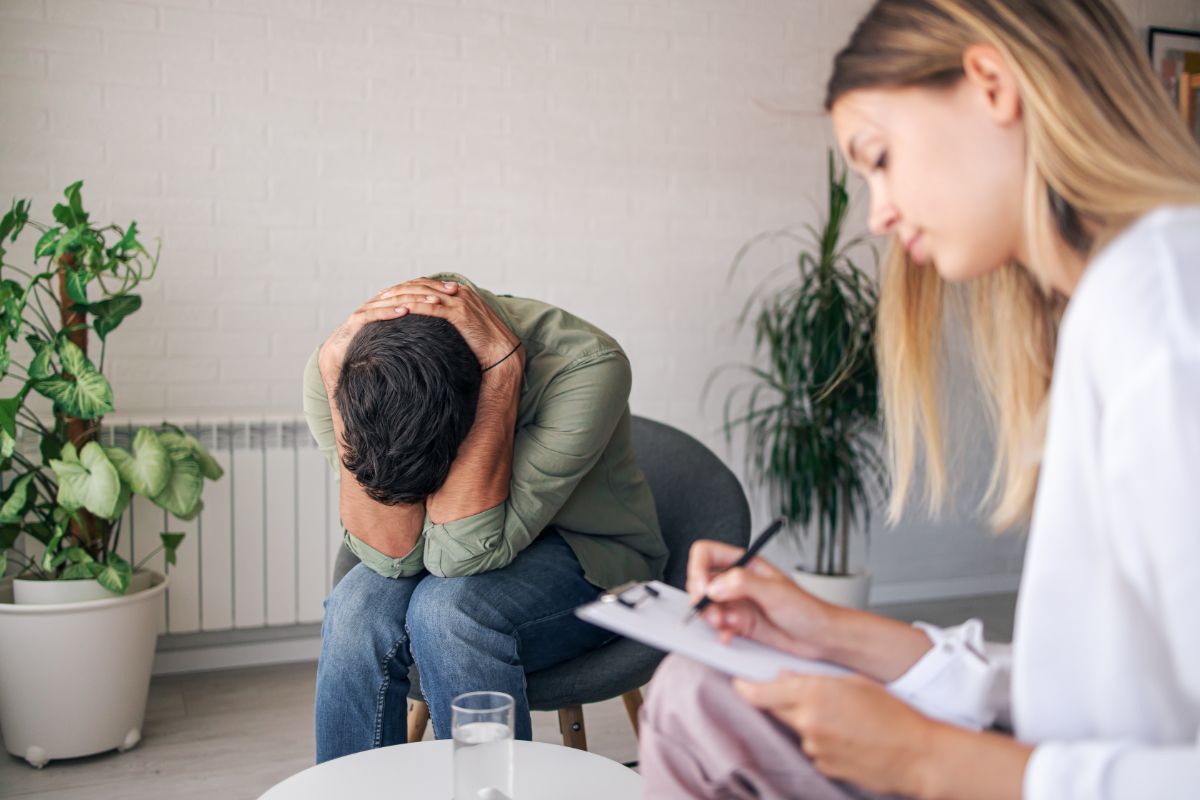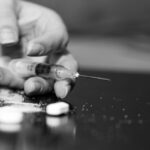If you or someone you love is in the early stages of drug or alcohol addiction recovery, it’s likely that withdrawal symptoms are being experienced.
These symptoms can range from fairly mild to very severe and so some individuals can really struggle in the first few months of recovery.

It is vitally important to ensure that there is a good support system available for an individual suffering from PAWS (post acute withdrawal syndrome) as these withdrawal symptoms can offer trigger a relapse.
Throughout this article, we will go into further depth about PAWS so that you have a full understanding of the syndrome.
What Is PAWS?
After partaking in a medically supervised detox from highly addictive substances such as alcohol, cocaine, and opiates, most individuals will find themselves struggling with mild to severe symptoms of physical discomfort.
These feelings can last from a couple of weeks to a couple of months. This time period where the individual experiences these symptoms is known as withdrawal (see also ‘Withdrawals: Symptoms, Causes, Treatments And Attitudes‘).
There can be many different types of symptoms, including but not limited to aching muscles, headaches, nausea, and an increased heart rate.
And if detox isn’t done in a safe and controlled environment, there can even be fatal complications.
And while physical discomfort may be the more known symptom of PAWS, it is a lot more than just that.
Acute withdrawal does mainly refer to how the body heals throughout withdrawal, there is a second stage of withdrawal that is less talked about.
In this second stage, your brain has to recalibrate and readjust post active addiction. Those suffering from post acute withdrawal syndrome in its second stage will notice that it is much more emotional and psychological.
This second stage can come weeks or even months after detoxing, and that will really depend on how long and how intensely the individual was in active addiction.
PAWS can be very triggering for the individual and even those determined to stay sober and clean can sometimes fall into relapse.
It is really important to remember that PAWS is temporary and will stop within time. Patience and perseverance are key.
Why Does PAWS Happen?
This syndrome can really range in severity from person to person, and that will usually depend on the substance, how long the substance was taken for, and how intensely the substance was taken during that time.
However, it is unfortunately a necessary process that must be endured in order to recover.
The way to look at withdrawal syndrome is that there’s been a lot of chemical imbalance damage that’s been caused throughout the active addiction, and now it’s got to fix all of those problems to function properly again.
You’ll suffer PAWS more intensely if you are recovering from highly addictive substances such as alcohol, benzodiazepines, heroin, or medically prescribed pain medication.
When Does PAWS Occur?
Many of the symptoms are often triggered by stress. In particular, expierences that induce stress because the people around them or their surrounding remind them of using or being in active addiction.
Those who suffer these symptoms often say that they can come in waves, sometimes lying dormant and then feeling impossible to ignore at other times.
At the beginning of recovery, symptoms can even change in just a matter of minutes.
But the good news is as an indivual begins to recover for longer periods of time, the symptoms do continue to gradually fade until they become very infrequent.
What Are The Most Common Symptoms Of PAWS

The best way to combat the symptoms of post acute withdrawal syndrome is to prepare for the symptoms you are likely to expierence.
Being prepared will enable you to minimize the chance of a relapse.
Always try to remember that these symptoms aren’t permanant so they wont last forever.
- Trouble remembering/brain fog
- Cravings and urges for the addictive substance
- Becoming irritable or hostile
- Trouble sleeping/disturbed sleep/vivid dreams or insomnia
- Fatigue
- Trouble with fine motor coordination
- Sensitive to stress
- Anxiety or panic attacks
- Depression
- Lack of initiative
- Inability to focus
- Mood swings
Can You Avoid PAWS
Unfortunately, there isn’t a way to recover while avoiding post acute withdrawal syndrome. There is good news though, because it is possible to manage your symptoms.
Once you have these symptoms under control you will also find that you feel much better not only physcially but emotionally too.
It will also improve your self-esteem the longer you stay clean and it can help to reduce the risk of relapse through this difficult time period.
How Long Do The Paws Symptoms Usually Last
Symptoms can be present for as long as a couple days at a time. How long you experience symptoms for will depend on which stubstance you are detoxing from. Some substances need a longer brain rehabilitation period than others.
It will usually take anywhere from 6 – 24 months for an individuals brain to being regulating the production of dopamine and endorphins.
Tips For Surving Through PAWS
Here are a few tips to try and help avoid relapse and making it through PAWS.
- Seek the help of mental health professionals (psychological and psychiatric)
- Be kind to yourself; eat well, excercise, try and avoid triggers, have a support system.
- Talk to others (family, friends, or counselors) about your experiences and problems, they’re their to help.
- Keep track of what triggers your PAWS and then attempt to solve this issue whether thats learning to deal with the trigger or avoiding it.
- Keep busy – don’t let your mind spiral for too long. Try to keep yourself from thinking about your cravings or urges.
Final Thoughts
Post acute withdrawal syndrome can be very difficult to get through at the time, but it’s really important to keep in mind that these symptoms will not last forever.
You cannot avoid PAWS if you wish to recover so it is imperative to try and manage the uncomfortable symptoms as best you can.
It is through this period that relaspe is potentially at its most likely, so it’s really important to have a great support system around you to help you through this difficult time.
But there is light at the end of the tunnel and recovery does allow many people get their lives back!
- Understanding Male Reproductive Health: A Complete Guide - February 2, 2025
- Simple Healthy Skin Habits for Radiant Skin - December 6, 2024
- Unlocking the Connection Between Nutrition and Mental Health - December 3, 2024








